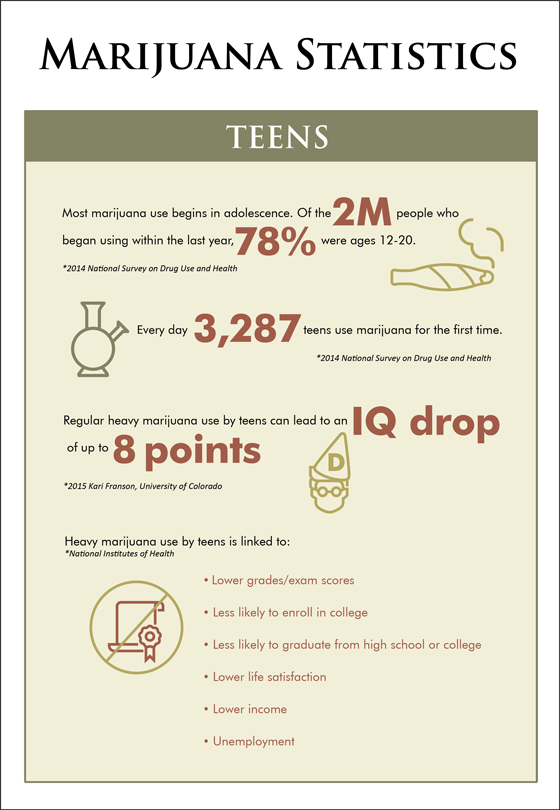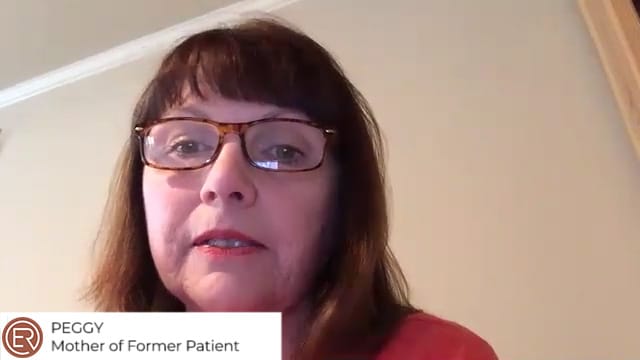- Psychiatric assessment and treatment
- Neuropsychological assessment and treatment
- Individual counseling
- Group therapy
- Family therapy sessions
- Intensive Outpatient Programs (IOP)
- Wellness, nutritional and stress management treatment services
MARIJUANA ADDICTION TREATMENT
At Enterhealth, marijuana treatment plans may include:
Offering a full continuum of care.
Enterhealth Ranch and Enterhealth Outpatient Center of Excellence offer the full continuum of care including residential and outpatient rehab options, both integrated together for the patient’s individual situation. During the residential phase of treatment, patients live at our 43-acre ranch facility while undergoing treatment. Among many other treatments, patients attend addiction recovery therapy sessions that are specialized to each individual’s addiction challenges.
Through therapy and counseling for marijuana addiction, the psychological aspects of dependency can be better understood by the patient. Counseling may be individual or group-oriented, and may also include the family. Continuing care programs are also available, as they are essential to provide counseling and continued support over a number of years.
Addiction is a chronic medical disease of the brain, and while it can be controlled, it’s important to recognize that it cannot be cured, at least at this point. If you or your loved one is concerned that you might have a problem with marijuana, the first step to answering that question is to seek an expert’s advice in the field of addiction.
The Enterhealth Approach
Based in Dallas, Texas, Enterhealth Ranch and Enterhealth Outpatient Center of Excellence provide a comprehensive drug and alcohol addiction treatment program. In addition, Enterhealth Ranch, our inpatient treatment facility, also makes patient comfort and privacy a priority by offering exclusively private rooms and bathrooms. Providing the best possible care for sustained recovery, Enterhealth’s advanced, evidence-based approach is created and administered by experienced, board-certified psychiatrists, therapists, nurses and other experts. Effective behavioral treatments for marijuana addiction can be administered in a residential or outpatient setting.
Call today and get help. Our alcohol addiction treatment experts are here for you.
1.800.388.4601
Is Marijuana Addictive?
Marijuana and its derivatives (such as hashish, concentrates, oils, etc.) are a category of psychoactive drugs from the Cannabis plant. Marijuana is most commonly smoked, but can also be vaporized (heating until the active ingredient is released but plant matter not burned) and consumed in food (edibles).
Despite marijuana’s federal legal status (it’s a Schedule I controlled substance), many states (33 and the District of Columbia at last count) have legalized or decriminalized the possession, use, sale and cultivation of marijuana. In addition, it’s estimated that about 10% of the U.S. population – or about 30 million people – used marijuana in the last year.

Short-term marijuana side effects
- Altered senses
- Altered sense of time
- Changes in mood
- Impaired body movement
- Difficulty with thinking and problem solving
- Impaired memory
- Hallucinations (when taken in high doses)
- Delusions (when taken in high doses)
- Psychosis (when taken in high doses)

Long-term marijuana side effects
Profound effects on brain development in younger users, leading to:
- Irreversible IQ drop of up to 8 points
- Elevated risk for low scholastic performance
- Lower satisfaction with life
- Exacerbated anxiety/social disorders
- Increased risk of psychosis
- Lung damage – marijuana smoke is 4 times more carcinogenic and deposits 4 times as much tar as a tobacco cigarette.
- Reduced fertility and sexual dysfunction in both men and women due to reduced hormone production
Marijuana withdrawal symptoms
What can I expect?
Marijuana is addictive and does cause physical withdrawal. However, marijuana withdrawal symptoms can often be mild compared to other drugs, leading many users and the public to believe that it is not addictive.
Additionally, depending on the frequency and amount being used, marijuana withdrawal symptoms may not present for up to three weeks after a person stops using because marijuana is stored in fat cells and can take days or weeks to get out of the system. This further muddles the correlation between a person’s use of the drug and their accompanying (but belated) marijuana withdrawal symptoms. Symptoms include:
- Troubled sleep
- Irritability
- Loss of focus
- Impaired body movement
- Anxiety
- Headaches
- Depressive state





